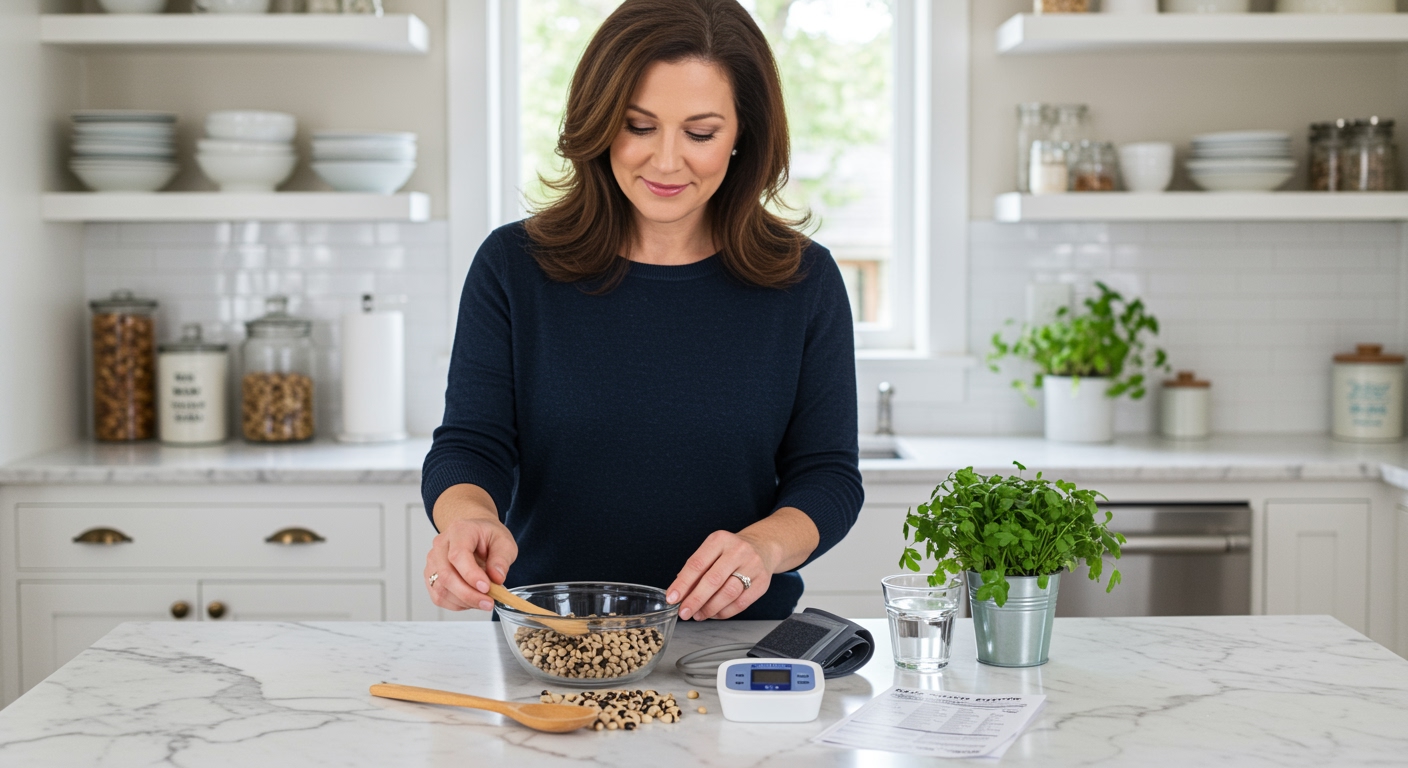✪ Key Takeaway: Black eyed peas can help raise low blood pressure through their potassium, magnesium, and protein content.
Introduction
Your doctor just told you that your blood pressure is too low and you need to make dietary changes.
You might be wondering if simple foods like black eyed peas can actually help raise your blood pressure to healthier levels.
Hi, I am Abdur, your nutrition coach and today I am going to explain how black eyed peas can support people with low blood pressure and why they deserve a place on your plate.
What Makes Black Eyed Peas Special for Low Blood Pressure?
Black eyed peas contain a unique combination of nutrients that work together to support healthy blood pressure levels.
These humble legumes pack about 690 milligrams of potassium per cooked cup.
Potassium helps your body maintain proper fluid balance and supports normal blood vessel function.
The magnesium content in black eyed peas also plays a crucial role in blood pressure regulation.
Your blood vessels need magnesium to relax and contract properly, which directly affects your blood pressure readings.
The protein content helps maintain blood volume by supporting the production of albumin, a protein that keeps fluid in your blood vessels.
✪ Fact: One cup of cooked black eyed peas provides about 20% of your daily potassium needs.
How Do Black Eyed Peas Affect Your Blood Pressure?
When you eat black eyed peas, several mechanisms work to support your cardiovascular system.
The potassium content helps your kidneys remove excess sodium from your body through urine.
This process helps maintain the right balance of fluids in your blood vessels, which can gently raise low blood pressure.
The fiber in black eyed peas slows down digestion and helps prevent rapid blood sugar spikes.
Stable blood sugar levels support consistent blood pressure throughout the day.
The complex carbohydrates provide steady energy without causing dramatic changes in your circulatory system.
✪ Pro Tip: Eat black eyed peas with a small amount of salt to maximize their blood pressure benefits.
What Is the Best Way to Eat Black Eyed Peas for Low Blood Pressure?
The preparation method can significantly impact how effective black eyed peas are for your blood pressure.
Cooking them with a pinch of sea salt can help your body retain more fluid and raise blood pressure naturally.
Adding healthy fats like olive oil helps your body absorb the fat-soluble vitamins that support cardiovascular health.
Pairing black eyed peas with whole grains creates a complete protein that supports blood volume maintenance.
Eating them warm rather than cold helps improve digestion and nutrient absorption.
Aim for about half a cup to one cup of cooked black eyed peas three to four times per week for optimal benefits.
✪ Note: Soaking dried black eyed peas overnight reduces cooking time and improves digestibility.
Are There Any Risks of Eating Black Eyed Peas with Low Blood Pressure?
Most people with low blood pressure can safely enjoy black eyed peas without any concerns.
However, if you are taking blood pressure medications, you should monitor your levels more closely when adding new foods.
Some people experience digestive discomfort when they first start eating more legumes.
Start with smaller portions and gradually increase the amount to let your digestive system adapt.
The fiber content might cause gas or bloating in sensitive individuals, but this usually improves with regular consumption.
If you have kidney problems, consult your healthcare provider before significantly increasing your potassium intake.
✪ Pro Tip: Keep a food diary to track how black eyed peas affect your blood pressure readings.
The Bottom Line
Black eyed peas can be a valuable addition to your diet if you have low blood pressure, thanks to their potassium, magnesium, and protein content.
Good nutrition is not about perfection, but about making consistent choices that support your health goals.
I would love to hear about your experience with black eyed peas or any questions you might have about managing low blood pressure through diet in the comments below.
References
At NutritionCrown, we use quality and credible sources to ensure our content is accurate and trustworthy. Below are the sources referenced in creating this article:
- DoveMed: 7 Health Benefits of Black Eyed Pea
- Vinmec: Diet for People with Low Blood Pressure
- Dr. Axe: Black Eyed Pea Benefits
- NHLBI: DASH Eating Plan





